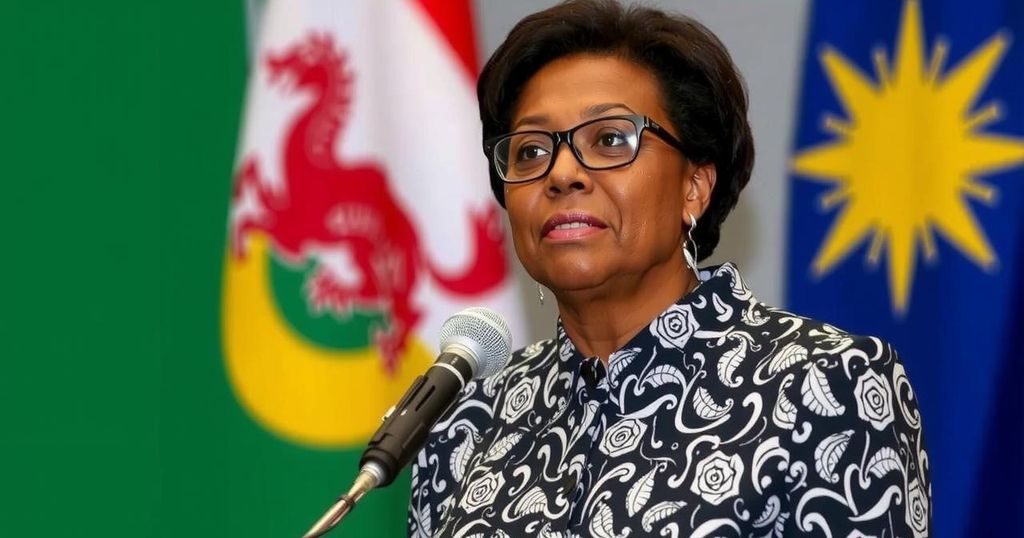Namibia’s Vice President Leads Amid Election Controversy and Opposition Claims
In Namibia’s presidential election, Vice President Netumbo Nandi-Ndaitwah leads early results, yet the election has faced significant issues, such as ballot shortages and an extended voting period. Opposition parties have rejected these results, promising legal action to contest the election’s validity, amidst economic hardships and a call for improved governance.
In the recent presidential election in Namibia, early results indicate that Vice President Netumbo Nandi-Ndaitwah, representing the ruling South West Africa People’s Organization (SWAPO), is leading amid significant challenges. Voting was marred by various technical difficulties, including a shortage of ballot papers, which prompted election authorities to extend the voting period for an unprecedented three days. Despite Nandi-Ndaitwah’s position as a leading candidate to become Namibia’s first female president, opposition parties have expressed strong dissatisfaction with the electoral process, claiming it has been compromised by illegal actions. They intend to contest the validity of the election results in court.
The election took place primarily in Windhoek, with voters also choosing members for Parliament. Nandi-Ndaitwah currently holds approximately 56% of the counted votes, contrasted by 27% for the main opposition candidate, Panduleni Itula. The ruling SWAPO party has faced mounting criticism due to economic challenges faced by Namibians, including high unemployment rates and allegations of government corruption, which have tarnished its reputation gained during the country’s independence.
This election takes place against a backdrop of widespread discontent with ruling parties in southern Africa. Political shifts have been noted in neighboring countries, where established parties have lost power, reflecting a broader trend of declining public confidence in longstanding governance. The electoral commission has stated there will be no re-vote, rejecting demands by the opposition, compounding the tension surrounding this election. Opposition leaders assert that the electoral process must serve the interests of all Namibians, suggesting a growing call for more expansive democratic practices within the country.
Namibia has a relatively stable electoral history, having been governed by SWAPO since its independence from South Africa in 1990. The current election marks an important juncture with a female vice president as the leading candidate. However, the election is notably characterized by various problems which have raised concerns about the integrity of the voting process—an unusual occurrence in a country usually regarded as a model of democracy in the region. This backdrop is complicated by severe economic challenges, especially for the youth, prompting dissatisfaction both within the electorate and among the opposition. The dissatisfaction observed in Namibia reflects broader trends in southern African politics, where discontent with ruling parties has been on the rise.
The presidential election in Namibia, with Vice President Netumbo Nandi-Ndaitwah leading amid claims of voter irregularities, underscores the tensions inherent in a democracy facing significant challenges. The opposition’s intention to challenge the election results in court highlights broader concerns about the electoral process and governance in a country facing economic difficulties. As the situation develops, it will be critical to observe how these disputes will shape Namibia’s political landscape moving forward.
Original Source: apnews.com




Post Comment